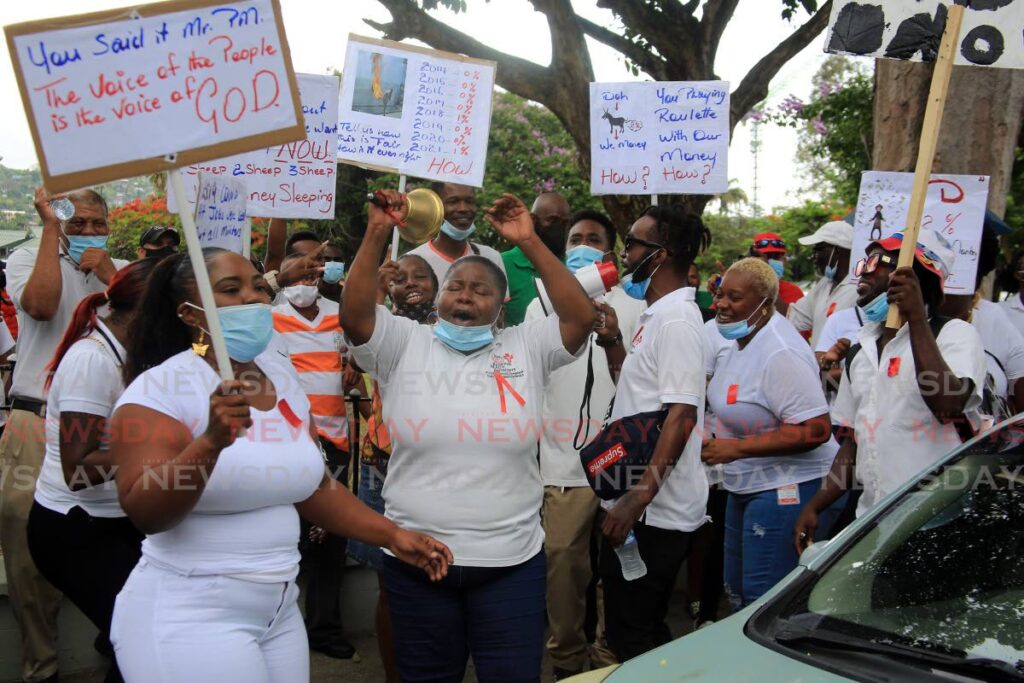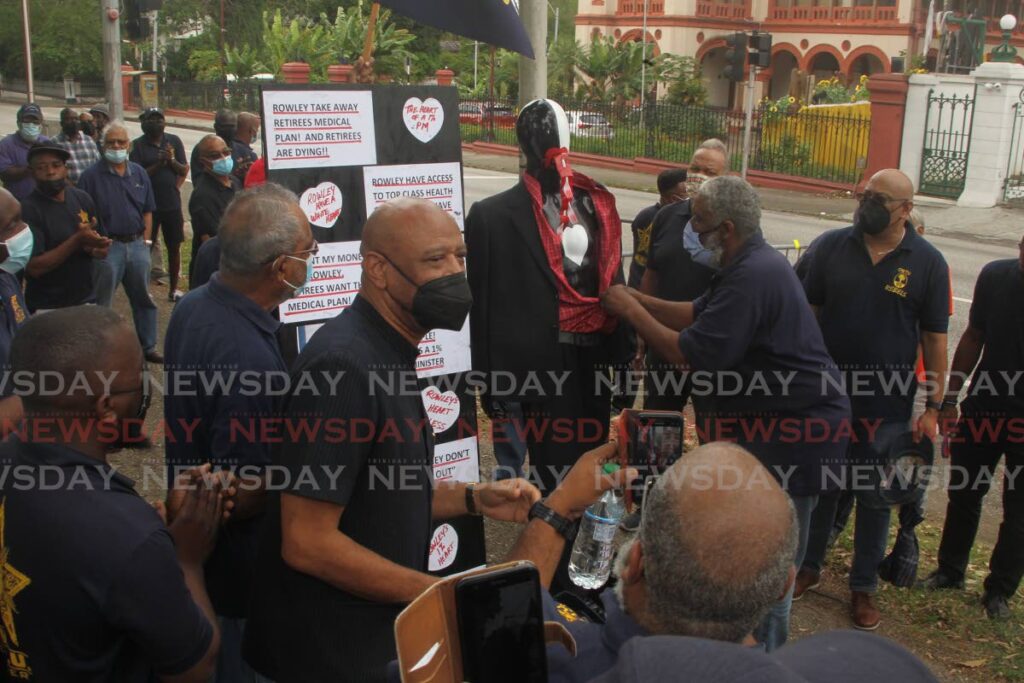To strike or not to strike

Carl Jung, the great psychologist, therapist and philosopher, is credited with the famous saying: “Out of evil cometh good.”
Actually, he did not say it. He reported that one of the people he had cured of psychosis said it, and in today-speak, it "went viral” and people – poets, priests, politicians, plumbers and polymaths of various stripes and professions – have quoted it ever since in mitigation of anything shady they have done.
Some reverse it and sagely nod, saying: “And out of good can come evil” when they want to sound wise.
All it really means is that all actions have consequences. Consequences that cannot always be foretold.
It calls to mind the war in Europe that has caused gas prices to rise, bringing a windfall to Mr Imbert’s mid-year budget, which he has amusingly attributed to government acumen at a time when criticism over the sale of Petrotrin against all advice is again raising its head.
Not least from retrenched Petrotrin employees.
Out of that good fortune, however, facing Trinidad and Tobago over the upcoming months is the very real social evil of the possibility of strike action called by those union leaders representing various categories of public servants in light of the not-yet-negotiated settlement of public-service wages.
And facing them is, to misquote William Shakespeare: “To strike or not to strike, that is the question.”
This is not a matter of following the provisions in the Industrial Relations Act that would cover strike action by public servants in pursuit of increased wages and conditions. There is no such provision for public servants.
Strike action called by non-public service unions will be legal if they follow the steps in the act that make strike action lawful, as it makes lockout action by companies lawful.
In either case the action is taken to force the other party to accede to demands of the first. Sometimes it works and the other party gives in, in other cases it doesn’t work, no one gives in, and the matter gets sent to the Industrial Court to be adjudicated.
Government employees are represented by more than one union. The Public Services Association (PSA) covers one category and National union of Government and Federated Workers (NUGFW) another, for example; then there are various professional associations.
In the case of government employees, if they are employed in essential services, no strike action is allowed. Those disputes must, by law, go straight to a special tribunal or section of the court,

This is not unique to TT. That is the law in all Commonwealth countries where governments have established, staff and maintain those services to the public that are considered essential to the health and life of the entire population.
Included in these services for TT are: public health, including garbage collection, medical emergency and hospital services; water and sewage and their administration; electricity services: generation, transmission and distribution (remember what happened when a tree fell and all went dark for 24 hours?); communication services: telephone, internet, wireless, electronic radio; public transport (which is an essential industry, but not an essential service); civil aviation: aircraft maintenance, air traffic control, and meteorological services.
This also applies to the public service itself, and Section 86 of the act lists the civil service, the police, fire, prison and teaching services, the supplemental police and the staff of the Central Bank as part of the services essential to the maintenance of law and order which enjoy access to a special section of the Industrial Court system.
In the case of employees of these services, therefore, please remember, as their representatives cry over loudspeakers for “fairness,” that they continued to be paid full salaries and wages even when they did not have to work during the pandemic lockdowns when the rest of the workforce lost wages and occupations and were looking for government grants.
Those specially privileged people do not have to strike to get an increase; that is what negotiations are for.
Public-service wages are already higher than in most private companies, but public servants as a result have had to survive on wage and salary levels negotiated eight or nine years ago. They were negotiated to increase slowly over the next five years.
The actual annual salary increases did not stop, if the internet records of public service costs to the country are to be believed. They are listed on the internet for anyone interested enough to dig them up,
Their pension rights remained, as did other special allowances such as medical, health, transport, insurance, education, and many others unique to public servants and genuinely related to work categories such as uniforms, safety boots or shoes every year and other understandable work-related expenses.
These are not only “matters of interest,” which is a term defined as those things that employed people want to get, but do not yet have, such as sanitary napkins for female staff now being promulgated, free covid testing every six months for those who want it, and so on…cost items, matters subject to negotiations and bargaining.
Many of those over the years have become “matters of right,” which are no longer negotiable because they are now contractual rights, agreed long ago and now listed in public employees’ contracts.
That these should continue are legitimate expectations, and will remain so unless they are negotiated out.
This does happen. For example, a couple of decades past, judges’ emoluments and benefits included housing as well as passages to the UK for judge and family, I think it was every two years. That was negotiated out and replaced with a “housing allowance” and what I recall as a “judicial contact” allowance, purported to allow for our judges to learn from colleagues in the UK.
I have no idea if that still goes on, when most such contact is done on the internet anyway nowadays. Perhaps it has been replaced by an internet allowance?
Conditions do legitimately change as technology and circumstances change and negotiated employee benefits, all paid for by taxpayers, also change.
The employers’ ability to pay is a relevant factor in any negotiation as well.
We know our government has been under heavy manners, income-wise. When the Minister of Finance somewhat injudiciously announced the budget increase of several billion dollars recently, not due to fiscal acumen but to a war in Europe, the public-service unions immediately leapt upon that announcement, implying it should all be given to public servants – not to paying off the billions owed to construction firms who are still waiting for money owed to repair schools and build hospitals, to pay T&TEC and the other essential services for services rendered but unpaid, or to social services and subventions for homes for abandoned, orphaned and abused children and to our hopes for the future.
Negotiation reports are going to be most interesting to read about as the weeks pass.


Comments
"To strike or not to strike"